Swastika Night
Swastika Night by Murray Constantine (pseudonym for Katherine Burdekin) is a dark and prescient, anti-fascist dystopian novel with some interesting parallels to Orwell's Nineteen Eighty-Four, which was published more than a decade later. Published in 1937, it is now considered an important work of feminist literature, depicting the utter subjugation of women as nothing above breeders, kept in cages like cattle or dogs, a comparison made throughout the novel. To give birth to a female is considered shameful, and yet ironically, the fecundity of this fascist, male-centric future is ultimately threatened by a shrinking number of female births. A landmark work of dystopian fiction, it is extremely rare in first edition, especially with the original dust jacket.
This copy is inscribed by the author on the front flyleaf: "To John Hampson / from 'Murray Constantine' / July 1937." Hampson was an author and literary critic best known for his novel, Saturday Night at the Greyhound, a surprise bestseller published by the Hogarth Press in 1931. Hampson's earlier first novel was rejected because of its too candid homosexual content. Apparently, Hampson made several visits to Berlin in the 1930s and covered the Reichstag fire for the New English Weekly [ODNB]. Also laid in is a clipped review, quite possibly by Hampson but not identified as such. A lovely association copy.
Hardcover. First Edition, First Printing. Octavo, dark blue cloth. London: Gollancz, 1937. Wessells 26. #10571.
Near fine in nearly fine dust jacket with slight darkening. Copies in dust jacket are extremely rare.

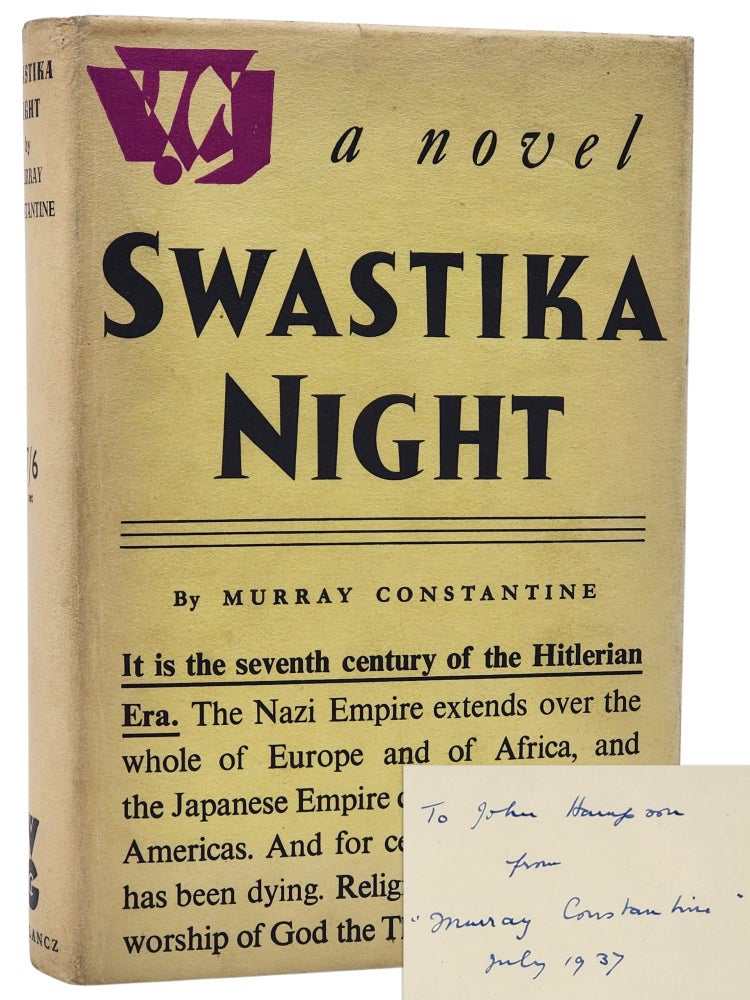
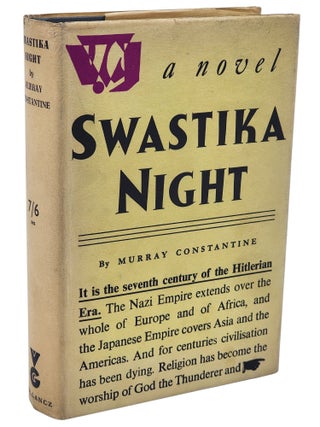
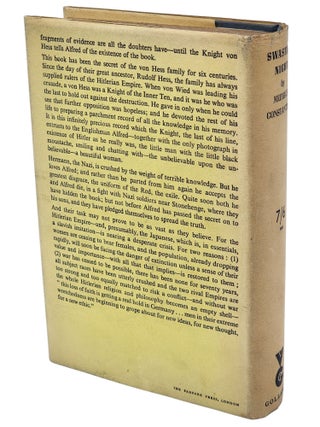
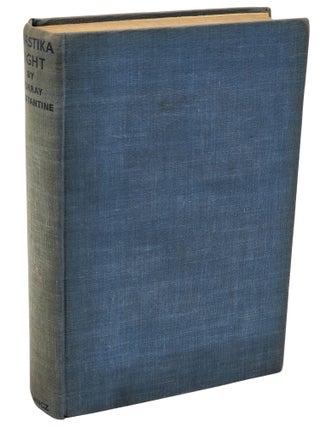
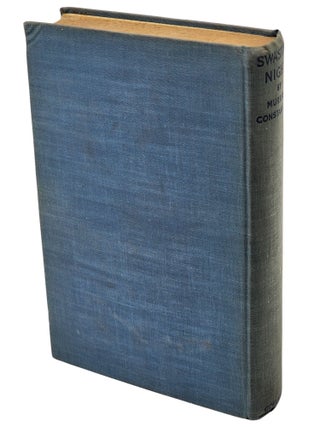
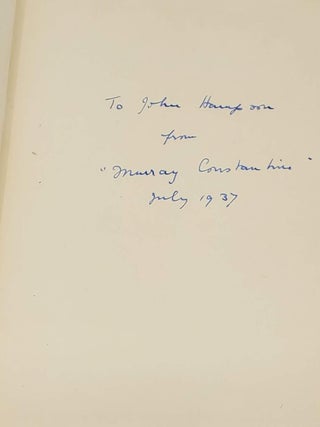
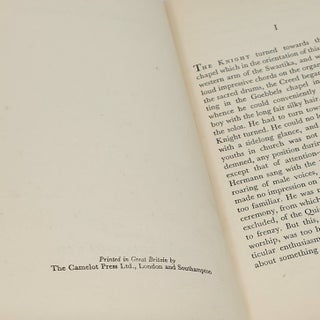
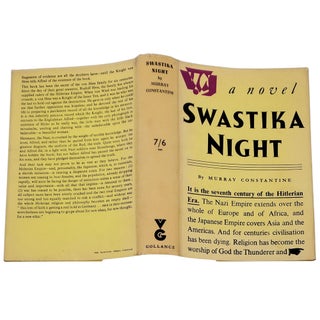
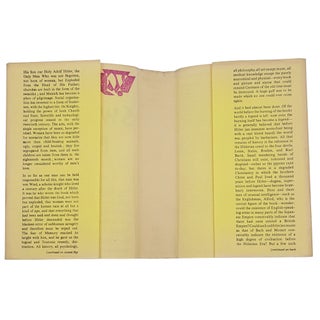
Swastika Night is a dystopian science fiction novel written by Katharine Burdekin, published in 1937 under the pseudonym Murray Constantine. Katharine Burdekin was a British speculative fiction novelist who published a number of later works under this pseudonym. The true identity of Constantine was not learned until the mid-1980s when American scholar, Daphne Patai discovered it while researching utopian and dystopian fiction. This ultimately led to the rediscovery of Swastika Night, and it was republished by the Feminist Press.
Swastika Night is set in a future society, 700 years after the Nazi victory in World War II, where an oppressive and misogynistic regime is established. The novel explores themes of totalitarianism, gender oppression, and the dangers of unchecked ideologies.
In this alternate reality, the Nazi regime has transformed the world into a patriarchal society where women are subjugated and relegated to a subservient role. The Swastika Night is a state-sponsored celebration of Nazi supremacy that perpetuates the regime's ideologies. The story follows a young man named Alfred, who begins to question the established beliefs and seeks to uncover the truth about the past.
Swastika Night is a provocative work that challenges conventional notions of gender, power, and totalitarianism. By envisioning a world dominated by oppressive ideologies, Burdekin's novel serves as a stark warning against the dangers of allowing extremist beliefs to shape society. It remains a significant contribution to the dystopian and speculative fiction genres, as well as an important early example of feminist literature.